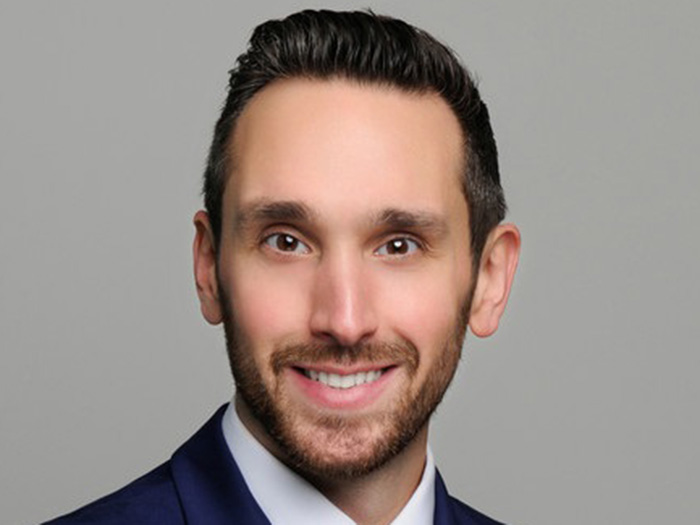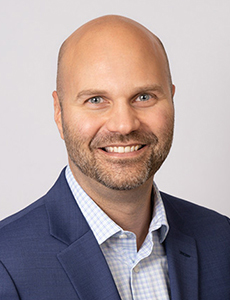Behavioral Health Conditions and Workers’ Comp Spending: Why It’s Time to Buy the Psych Claim

After a broken leg, an injured worker is struggling to return to work. Despite signs of physical healing, they’re still reporting pain. They have trouble getting out of bed or feeling motivated to continue their healing.
They’re lonely and they miss their coworkers, but they can’t seem to regain the strength they need to get back to the office. Perhaps they’ve received an opioid prescription and are continuing to get refills long past the point when their pain should have subsided.
Some workers’ comp professionals may look at the situation and cry fraud. Others might worry about an opioid addiction. But few would consider that there may be an underlying behavioral health condition — like depression or anxiety — motivating the injured worker’s behavior.
“When somebody gets hurt, it’s like they get taken out of the picture,” Michael Nguyen, PharmD, director of clinical pharmacy for myMatrixx, said.
“They’re not working; they’re not interacting with people. So, it’s natural for them to have some sort of reactive mental effect, whether that be anxiety or depression.”
While not necessarily a work-related ailment, the depression and anxiety that come with a work injury can derail claims, impact physical healing and leave injured workers at greater risk for addiction. If left untreated, these conditions seriously risk driving up claims costs.
Payers Still Hesitant to Buy the Psych Portion

Phil Walls, RPh, chief clinical officer, myMatrixx
For years, workers’ compensation payers have been hesitant to pay for behavioral health care or drugs that help treat conditions like anxiety and depression. Buying the psych claim, adjusters thought, would only create unnecessary claims costs for workers’ comp insurers.
“There was a very prevalent saying among payers: ‘Don’t buy the psych claim,’ ” said Phil Walls, RPh, chief clinical officer at myMatrixx, “meaning they didn’t want to pay for psychiatric drugs, because that was going to escalate the cost of the claim.”
Workers’ compensation is meant to cover the treatment of work-related injuries, and because of that, many adjusters focus solely on physical injury.
It is fairly easy to prove whether or not a broken leg or sprained ankle occurred while an employee was on the job. With conditions like depression or anxiety, it is harder to prove a connection to the workplace, even if the mental illness arrives in conjunction with a physical injury.
“Depression in and of itself is rarely a compensable claim on its own,” Nguyen said. “It generally arises in the course of the injury, or it could be underlying where the patient may be suffering from some mental illness before they experience the work injury.”
Unaddressed Behavioral Health Conditions Derail Claims
While adjusters thought that a focus on physical injuries would help workers’ comp insurers save money, ignoring the ways behavioral health affects the life of a claim has often led to delayed return-to-work, greater risks for addiction and even inability for injured workers to get treatment for their physical pain.
Depression and anxiety among injured workers are common and costly. People receiving workers’ compensation as a form of medical payment are 33% more likely to develop depression than people without occupational injuries, according to a study by BMC Public Health. Depressed workers also tend to miss between six and 25 more work days annually than their peers.

Dr. Michael Nguyen, director of clinical pharmacy, myMatrixx
“If you don’t prioritize mental health from the beginning, it will emerge whether you like it or not in the life of the claim,” Nguyen said. “If it’s not addressed, it will emerge.”
Aside from the negative mental health side effects and the potential for absenteeism or delayed return-to-work, injured workers with depression may also be at greater risk for addiction.
Studies have shown that common mental health conditions like anxiety and depression can put people at greater risk for problematic opioid use.
“We don’t know all the details of what causes someone to become addicted, but isolation and depression is certainly a component,” Walls said.
“Since pain and mental illness are both subjective conditions, it makes it very difficult for external providers and stakeholders to make sense of it so that we can give the patient the proper care,” Nguyen added.
The link is likely due to the euphoric state caused by many opioids. For people with depression, this heightened state can help them feel almost normal. Even if they’re successfully weaned off of opioids, they could be at greater risk for relapse if the underlying behavioral health issues are not treated.
“If we successfully wean a patient off of opioids, but no one identifies the cause of the addiction in the first place, the chance of relapse will be significant,” Walls said. “Behavioral care identifies that missing component.”
Blanket rejection of psychiatric treatments by payers can also prevent injured workers from accessing the care they may need for their physical recovery.
If an injured worker receives a prescription for the antidepressant Prozac, for example, adjusters may reject it because they don’t think it’s related to a physical injury. They may not know, however, that it can also be used as a pain management medication.
Because of all of these factors, Walls and Nguyen believe the conversation around behavioral health treatments in workers’ comp needs to shift to prioritize workers and their overall well-being.
For them, it’s not just about advocating for injured workers; it’s about saving workers’ compensation insurers money as well. Experts have noted that payers could save between $26 billion and $48 billion annually if they effectively integrated medical and behavioral health care.
“Today the discussion needs to turn from one of ‘don’t pay for the psych claim’ to more of a ‘one cannot afford not to pay for the psych claim,’ ” Walls said. &










